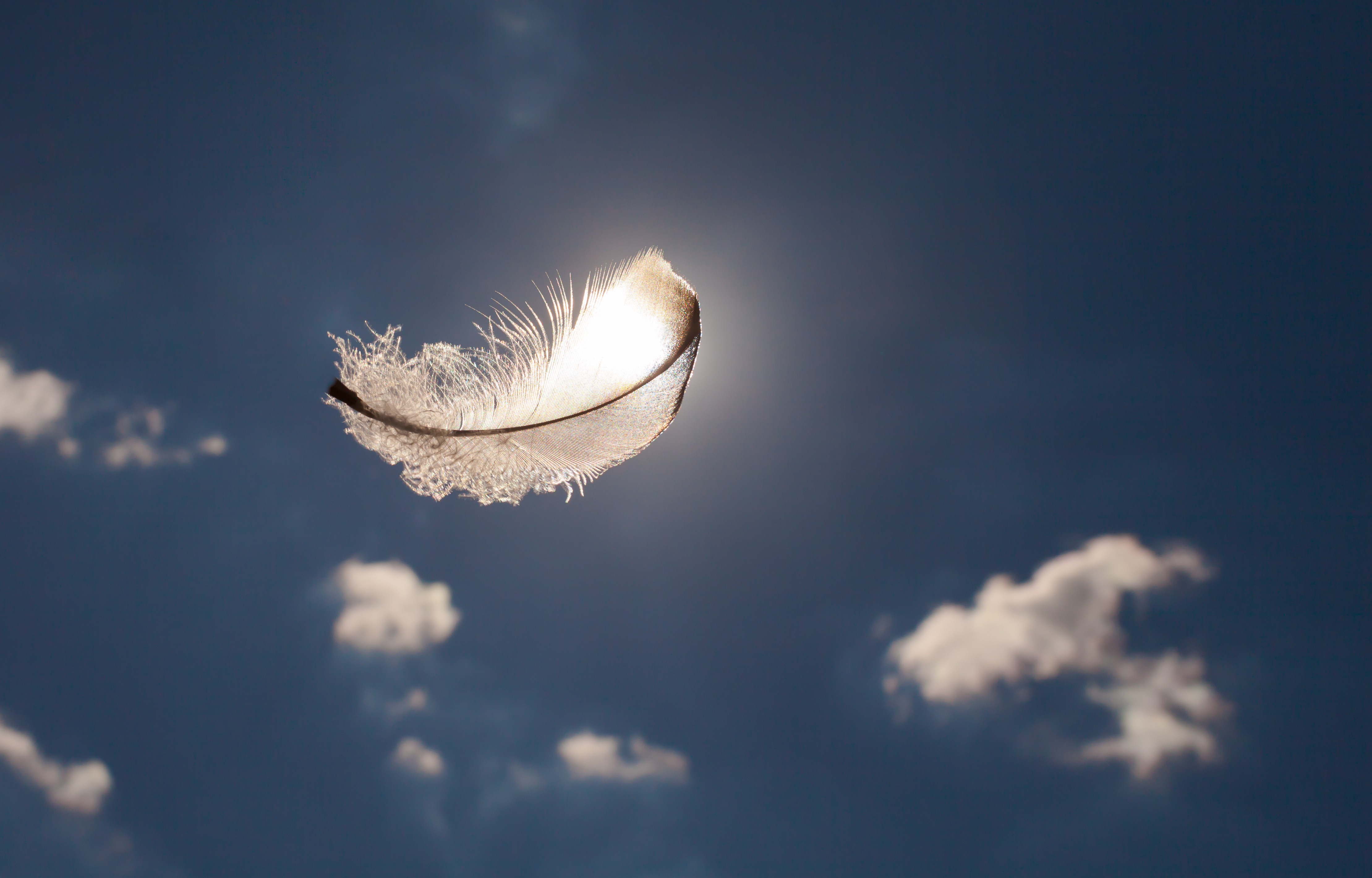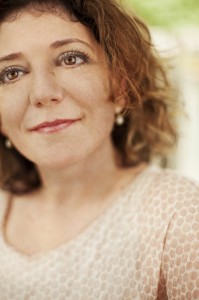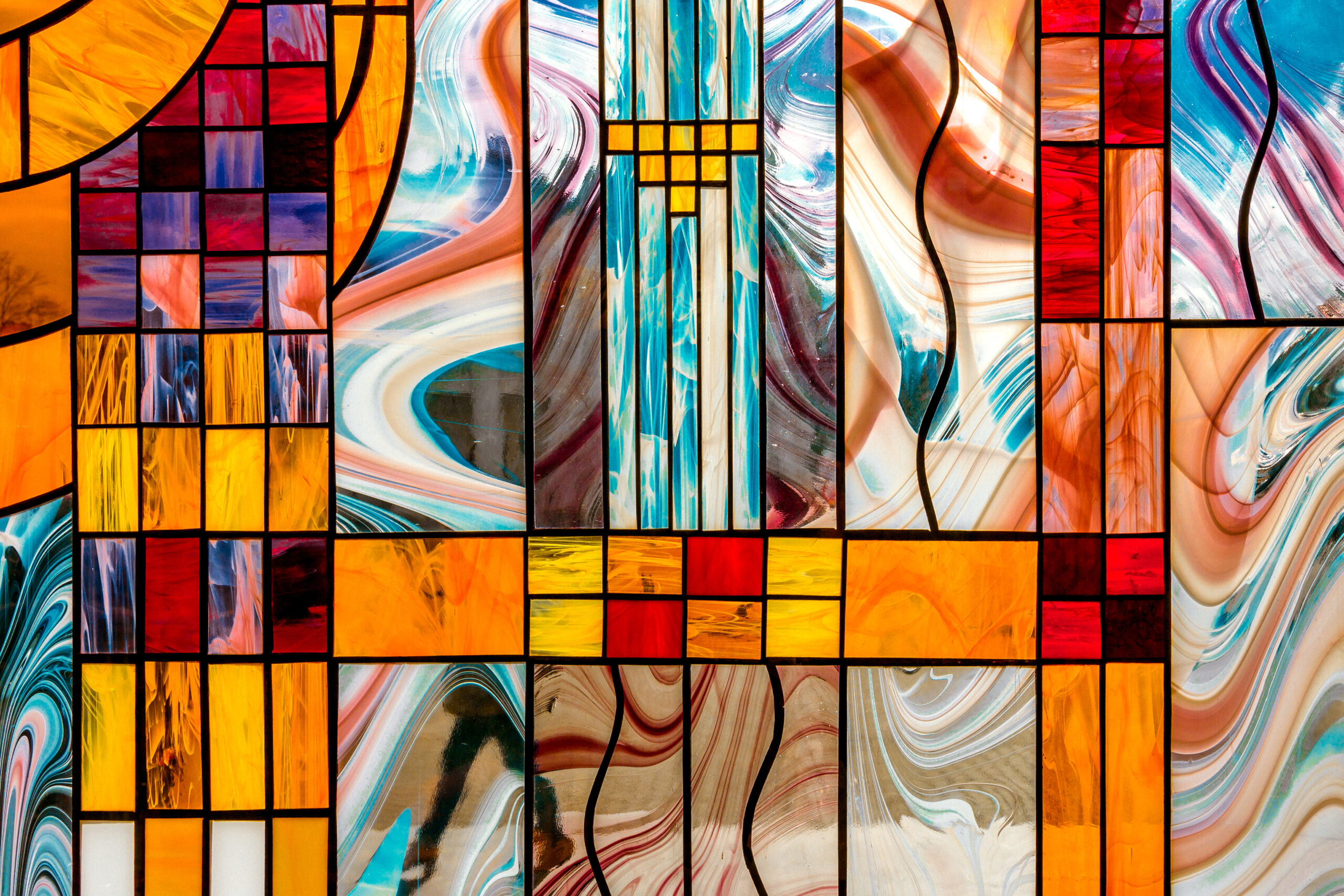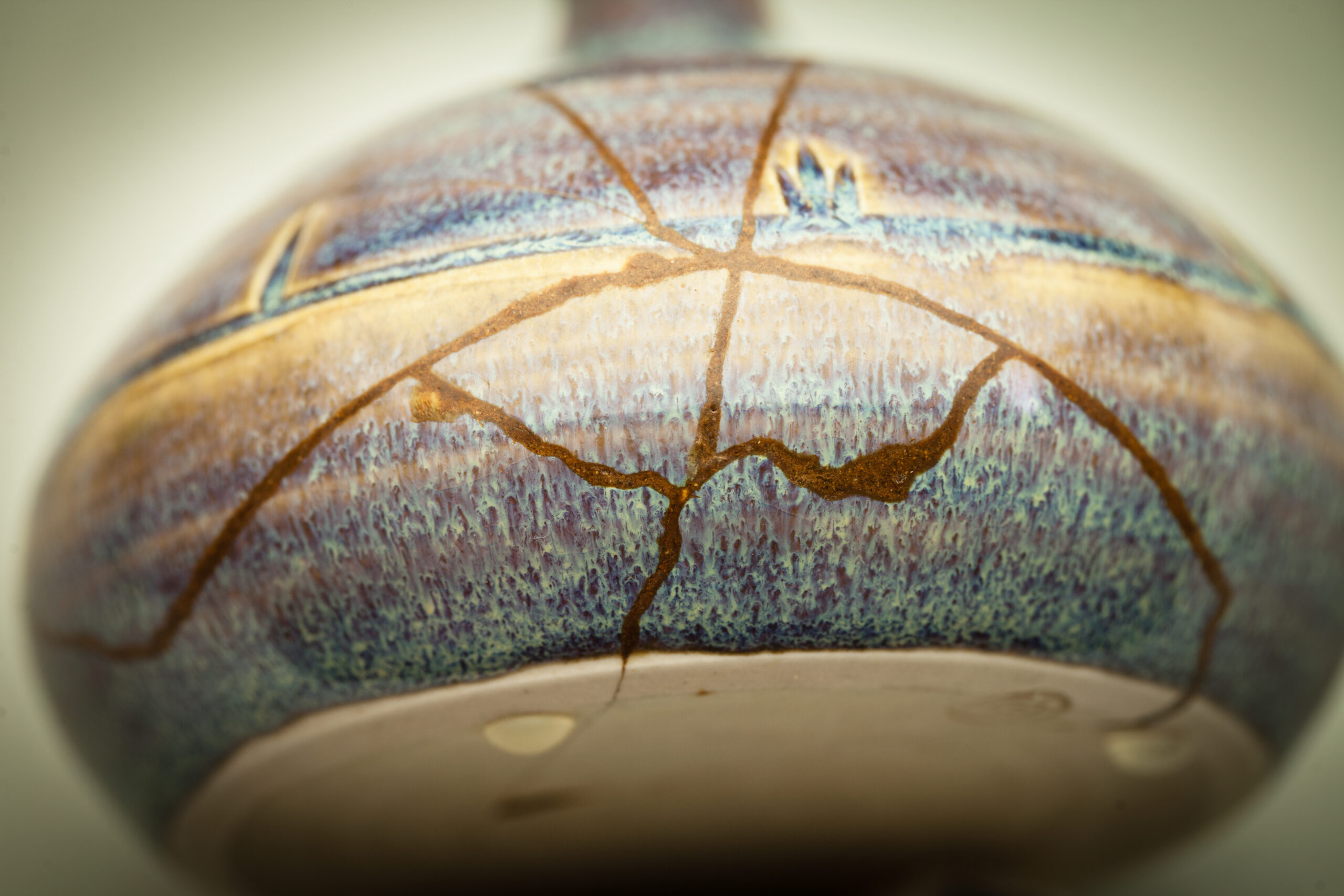Katie Steedly’s first-person piece [The Unspeakable Gift] is a riveting retelling of her participation in a National Institutes of Health study that aided her quest to come to grips with her life of living with a rare genetic disorder. Her writing is superb.
In recognition of receiving the Dateline Award for the Washingtonian Magazine essay, The Unspeakable Gift.
Enter your email here to receive Weekly Wide-Awake
We All Breathe the Same Air: A Gratitude Conversation with Janice Nolen

KSC: What are you grateful for?
JN: Gratitude has sort of been a driving theme in my life. I’ve always been incredibly grateful that I had the family that I had. My birth mother died when I was six, and my father abandoned me. I was raised by my half-sister who is older by fifteen years and already had two children and a husband. The fact that they took me in and raised me was never absent from my thinking and my understanding. I was always grateful that I had a family that loved me and cared for me and raised me. As an adult, I’ve shared that with my mom and dad and they’re like, “Are you crazy? You’ve always been our daughter. Don’t be ridiculous.” They’ve just been astonished that I felt that way, but it’s been a driving force for me growing up.
So, extreme gratitude for being in a safe, secure, loved place. I could have easily been lost and caught in some awful place. That’s helped to shape my thinking about a lot of things in the life that I have. They were also very good at bringing people to us so that we could see how fortunate we were compared to others. I don’t know if that was intentionally their action but it was one of the results. We had a couple of homeless people who lived with us. Some of these guys were alcoholics. They could stay with us as long as they were sober. It was another one of those opportunities to realize that you’re very fortunate. That you’ve got a home. That you’ve got people who love you. That you don’t have this kind of problem. It helped me as an adult to see people who have a larger need. I don’t know, maybe just real identification and sensitivity to them than I otherwise would have had because I’ve met them and lived with them.
I worked with my first husband and volunteered for a homeless shelter in Nashville. I was not sure I wanted to do it, but it became a terrific opportunity for me to meet a lot of people from a lot of different places in the world. I worked as a volunteer for twelve years there and still keep in touch. We’re still friends and donate money to it. It’s helped me to see that it’s not something that you have a lot of control over–in some cases your world changes immediately as a result of a thing.
I also had some wonderful experiences. I’ve had jobs that were absolutely fabulous. I’ve had careers where I’ve been able to make a real difference. That’s something I’m eternally grateful for. Not everybody gets to be in a place where you can take advantage of opportunities and make a difference, and sometimes in very big ways and sometimes in small ways.
Two historic bridges are standing because of work that I was able to do–to research their history and argue for their preservation. Because of the unique role I played, I could make a difference and make sure those bridges are still there. They’re now both walking bridges that pedestrians use, and they are local landmarks for crossing. They are considered to be wonderful public spaces.
And then, I also have the great work that I do, or opportunity that I have, to work with the Lung Association. I’ve been at it long enough and tracking air pollution long enough that I can see the impact of the work that we have done. Now, I have not personally cleaned up the air, but we’ve been advocates and educators and informants and media spotlight-throwers on these issues, so that we’ve been able to reduce air pollution. It’s just phenomenal to be a part of. I’ve had the privilege of working with multiple EPA administrators, sitting, with lawyers and writing legal actions, and working on talking to media. Not everybody gets that opportunity and I’ve had it.
The other thing I would add is that I’ve had wonderful husbands and support. I’m truly grateful for that. As a girl who didn’t date until she was in college–till she was out of college, really–the fact that I married two awesome men is just…. It can happen to you. Don’t think that period in your life is over. If you’re not married, you can find somebody who can bless you in so many ways. I have good relationships with family. You know, just a lot of things that are everyday reminders that I am a very, very fortunate woman.
KS: How do you practice gratitude?
JN: I’d say I probably don’t do any kind of a grateful living thing. For a little while there I did a ‘three things you are grateful for that happened that day,’ and they were always the same thing. I became kind of reluctant to do that. But no. I think part of that is just your attitude and thinking about it. We got our house painted this year. I’m grateful for that. These things that as I walk around the kitchen and it’s got a fresh coat of paint on it, it’s a reminder of how grateful I am. It’s like everything that I see can carry that message to me because I’m seeing it, remembering what it used to be like, or thinking about how things could be otherwise. Talking to people who are struggling or being old enough to remember things when they weren’t as nice as they are, are good reminders of the blessings you have.
KS: What role has the health stuff that you have lived through this year played in your understanding of gratitude?
JN: I am grateful. I’m still alive. I have friends or family members who didn’t make it through their first year with ovarian cancer. I have also been grateful because my first husband died of lung cancer almost twenty years ago. The changes and treatments that are available to treat cancer and the innovations that they have come up with are just astonishing. It’s especially easy for me to see because I remember how limited our opportunities were back in 1998 and how wealthy I am in terms of opportunities.
I’m hopeful. The other thing is that it’s a reminder of how short life is for everyone, you know? My first husband’s death also drove that home to me–that one of the only guarantees you have is that life will end, and you need to live your life in a way that gives you the thing. You’re doing what you need to be doing, what you want to be doing. I’m grateful that I’ve been able to do that regardless, you know. If I, God forbid, died tomorrow, I have a life that I have been comfortable and happy with and I’m grateful for that. Not everybody gets that.
KS: Is there a connection between gratitude and work? Our life’s work?
JN: For some of us, it is. I’m not sure, if I was a waitress at Crystals or something, that I would feel the same way. Not everybody gets to do the kind of things that I’ve been able to do. I recognize that every day. I am truly grateful. I’m getting to engage with people who are very smart and very active, or who play a role that’s crucial to the work. They are the deciders and my unique place gives me the opportunity to do that. It’s in my face every single day when I’m at work that that’s the way it is and I’m grateful for it. It makes me willing to put in the hours that it takes to get it done.
For example, we were talking with a researcher. The EPA had revised the way they were calculating the benefits of cleaning up the air and I reached out to him. I said, “George, can you help us articulate this better? Because you’re one of the researchers?” So, he was in the Washington Post today, and these are people that are very smart, know how to do these things, and it’s also just because I’m in a place where I get to meet regularly with some of these people who are leaders. Gina McCarthy sent me a wonderful note when I was sick, talking about how much the work that the Lung Association does and that what I did was helpful. She was grateful for that and concerned about my health. Not everybody gets a note from the EPA administrator. Not everybody gets to do that and I’m grateful for that.
KS: I’m connecting this thought back to what you learned about serving others, and being there for others–as a child seeing that modeled by your parents.
JN: I think that was part of the intent of my parents, that we should get that understanding. We were living in a community where the houses were not expensive. My dad ran a gas station and a body shop. We weren’t wealthy but we had advantages, and we were taught we should open our hearts to other people. We used to go Christmas caroling every year for charity, to raise money, because they wanted to make sure we knew that there were people who are worse off than we were.
KS: Can we learn to be grateful?
JN: We can pick it up. Yeah, I think so. Your parents can help you. My parents didn’t sit there and lecture on this, but they kept giving us experiences that I certainly caught on. I think it’s being aware of your situation and seeing your situation in light of other situations and seeing your gifts, so you know what you’ve been provided in the world. Putting that in perspective is certainly something that you can be made even more aware of. Now, how you do that if you’re an adult and didn’t have that growing up? I don’t know, but it’s certainly something that can be a part of growing up.
I don’t think you could actually go and say, “Now here’s your lecture on gratitude.” Right? Around the homeless shelter I learned these are worthy people. These are wonderful people. They happen to be, for a variety of reasons, in a bad situation. We respect them. We treat them with respect and love because that’s how we should be doing this. You become more friendly with them. You see them. It can open your eyes a little bit and remind you that you can go home. That you have a bed that is yours and water that’s clean. You don’t have to figure out where you’re going to go to the bathroom because your bathroom is in your home. Those are some pretty powerful lessons.
KS: One of the things that has come up across the interviews is the value of knowing someone’s story. Several people have said when you walk in someone’s shoes, when you know their story, you are part of a community. Does it make sense that knowing our respective stories has a role in gratitude?
JN: I think it does and I think it helps a lot too, to be able to see the world from different eyes and see how it might be different compared to you. The air pollution story isn’t necessarily a personal story. It’s the story of a change, and how you can better understand your place in the world by your role in that change in your nation. It reminds you that you are one of a community. A bunch of people that work to make that happen. Be grateful that you were part of that effort and maybe story is a global story as much as an individual narrative.
That’s a reminder to be grateful. Stories can be not just about you, but can be about the place in the world. It’s amazing to me. I’m grateful that I live in this country. That some other people did these things. That women fought. I mean, when I walk down Pennsylvania Avenue, I am always reminded of the people who marched down that street.
KSC: Is being grateful important? Is gratitude important?
JN: Yes. Yes. Yes. It gives you perspective. It gives you the ability, or at least it should, to help you to just end the day in a much better place. It does such a good mental health thing for me. I go to work for hours and hours. But because I have seen the benefits of it and the progress and the power of it, I’m grateful to be able to do it.
KSC: Is there a connection between gratitude and creativity?
JN: I don’t know. I’ll say that gratitude is one of those things that I can express with. I will say I’m grateful for the friends that I made in Words of the Spirit. It has been a wonderful community in DC. I didn’t have that when I walked in, so I’m grateful for that. I have also known the writing part of it is always a challenge. How do you figure out what you want to put down? And how do you put it down in a way that somebody else might want to read? I’m always glad that folks in our group were always open and listening and not being critical of each other. I know part of being a good writer is being critical of your own writing and other people’s perspectives on it is helpful. I’m grateful that I have good friends to write with. This is a wonderful opportunity that makes me want to do this, but I don’t see it being a creative part as much as it is just an environment.
KSC: Is there a cultural component to gratitude? Do folks from the South show gratitude differently?
JN: Well, is there a cultural component? Does it look different where we’re from? You know, I don’t know. I mean, you’re raised to be respectful, recognizing that you’ve been given something. You say, “thank you very much.” All those things are always part of what our parents and what our moms at the church taught us. I think it’s definitely a part of that. Whether that differs from other parts of the country I really don’t know. I do think that it may be that in the South it just depends on who you’re running into, what you’re seeing.
KSC: Is there a connection between leadership and gratitude?
JN: That’s a good question. I would hope so, though I would say if we look at our current president, that is not the reason he is where he is. I think for women it may be a stronger piece of it because we know how fortunate we are to be in a position, especially if we’ve been watching the rest of the world, women aren’t always in those positions. Women aren’t always given the opportunity or recognized for the work that we do. It’s more like, “Well, you should be grateful.”
People talk about feeling the responsibility of leadership. I’m not sure if I have heard a whole lot of people say, “I’m grateful that I’m a leader,” though. Occasionally, you’ll hear from some people that I’m grateful to be in a position to do this work. Sometimes you do hear that, but often when you’re talking to people on a work-related basis, it’s more like you can see them and see what they’re doing. You know, my boss, for example. He’s just been awesome. We don’t always agree on everything. We’ve had wonderful arguments over the years, but he came to me because of the work that I do. I would do almost anything for him because of his leadership and the work that he does. I’m grateful. Whether we talk about it or not, I know he’s glad to be in the role that he’s in, but gratitude isn’t a conversation piece per se. His willingness to let me do what I need to do. His support for me. He nominated me for the national award for staff which they gave me last year recognizing work that we do. He is definitely willing and committed as much as anybody to getting those things done. He helped draft the Clean Air Act as a staffer on the hill. Its personal. It’s huge.
KS: My hope is that by connecting gratitude to things like creativity, and leadership, and story, we make gratitude tangible and really get underneath how we do it every day.
JN: One thing that I’ve been thinking more about is mindfulness. One of the aspects is like walking down the street. You’re walking on sidewalks that somebody poured. I see the same guy polishing the brass in the doorway once a week. I thank him because it’s beautiful. These are things that we go by all the time. The fact that we have sewer systems in this country. That we have elevators. Somebody had to make those connections, not only invent but install it and maintain it.
In the world that we live in you can’t help but be grateful because you realize that but for the grace of God, you wouldn’t have water coming out of your faucet that was clean. You wouldn’t have just a lot of the ordinary things that we don’t even give any second thought to most of the time. Somebody had to do that. Keeping that mindfulness about the world is, to me, a good way of reminding you to be grateful on a daily basis.
It’s much more global then a nice glass of red wine or some really good dark chocolate. Like the kinds of things that get ignored because we expect them to work. We expect it. They’re right, but somebody had to build that. Somebody had to make sure that it works. If you make the wrong decision, we see what we saw in Flint Michigan, where the water got contaminated. These are not things that happen automatically. They are things that happen because people intentionally acted in a way that helped us all to live better and that’s helpful. It’s these things. While they may not get any, you know…. Nobody’s going to make a movie about my life, but there are bridges standing there because of some stuff that I did that was built on care for people and I’m grateful.
I hope that environmental protection, now that we know what regulation does and how it helps. How it makes us healthier. How can we go back? Sometimes it is hard for people to remember what it used to look like. There’s an article recently with some of the National Archives photos. One of the great things the EPA did in the early 70s after they were formed was send photographers all over the country to photograph what we were seeing with pollution. It’s in the National Archives and you can go through pages after pages of images. You forget how bad it was.
You know, there’s one of my favorites. Its Birmingham, Alabama. The photographer is on one side of a neighborhood street and there’s a house on the other side and you can almost not see the house because the haze from the pollution that’s in the air. There’s a man walking. You can see the man a little more clearly because he’s closer to you, but you can’t see the house easily. That’s in my lifetime. That’s since I graduated from high school. It’s easy to forget how bad it used to be. Another thing to be grateful for is that some of that was captured, and there are photographs we can use to remember. Because we’re better now doesn’t mean it’s inevitable. And, in fact, I’ve got a meeting next week with five air pollution control specialists from Mongolia who are coming as part of an exchange to the US to learn more about air pollution control because Mongolia has some of the worst pollution in the world. The worst in the world. Even worse than China. They’re looking to understand how to do this. It’s because we’ve been great. We are grateful because of the things that were put in place in the late 60s and early 70s. The law that was very strong and helped us to get things cleaned up. Not every other place in the world has that. It is a reminder that yes, it can go back. It’s just a reminder about your responsibilities to keep up the fight.
Let me give you let me give you some numbers. Between 1990 and 2010 it is estimated that we prevented the deaths of one hundred and sixty thousand people a year and that by 2020 it would go up to two hundred and thirty thousand people a year. They are not dying early because they’re not breathing this crap that we had across the nation. We’ve done more since then. I know that was only stuff they’ve put in place since 2010, and there’s some major rules. It gives you a sense of purpose and gratitude that you can be a part of that. That’s leadership. That’s story. That’s connectedness. We are all in this. We breathe the same air. Whatever tax bracket we’re in. Whatever state we live in. We breathe the same air. We live on the same planet. It’s the same story.
KS: These conversations have helped me keep singing in many ways. I feel so strongly about sharing what I’m hearing. Everyone needs help singing right now and finding their song if they don’t know it yet. What else is there to do at these times? The sea is so big, and our boats are so small.
JN: I think I told you this story before, but one woman who shows me that every day is the janitor who cleans our bathrooms at the office. I go in there when she’s there with her cart and she’s wiping down toilets for God’s sake, on fifteen floors every single day, and she’s singing. And she has been a role model to me of looking at the world and recognizing that there is joy regardless of what you’re doing, and that it’s important, whatever job you have. It’s just made me very grateful that there are people who can show us how you can live in this world and be a healthier, happier person. We all have a song, you know, we all have something to do.
Janice Nolen’s Obituary as published by the American Lung Association
2 Replies to “We All Breathe the Same Air: A Gratitude Conversation with Janice Nolen”
Leave a Reply Cancel reply
About Katie

From Louisville. Live in Atlanta. Curious by nature. Researcher by education. Writer by practice. Grateful heart by desire.
Buy the Book!
The Stage Is On Fire, a memoir about hope and change, reasons for voyaging, and dreams burning down can be purchased on Amazon.






We scientists are grateful for having worked with Janice, even more than she appreciated us.
It’s one thing to do research, it’s much more to have it, and your expertise, transformed into action. That is what she enabled for us so well. Janice is much missed.
The world was a better place because Janice was in it. I miss her, too.